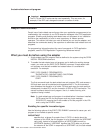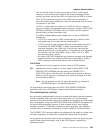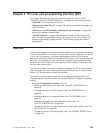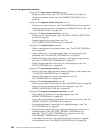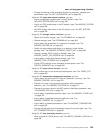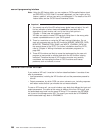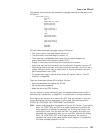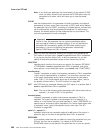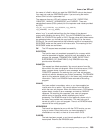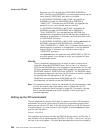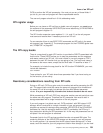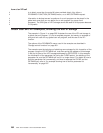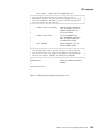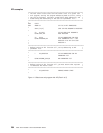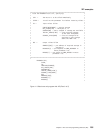
Note: If you build your parameter list incrementally, do not specify CLEAR
when you finally issue the call, because the CLEAR option sets the
parameter list to zeros, which will cause you to lose the preset
values.
CLEAR
sets the existence bits in the parameter list (both mandatory and optional
parameters) to binary zeros. Each macro has a COPY code, which defines
the parameter list by a DSECT consisting of a header section, followed by a
set of existence bits, and the parameters themselves. For performance
reasons, the header section and the existence bits only are cleared. The
rest of the parameter list is left unchanged.
Important
Failure to clear the parameter list can cause unpredictable results,
such as program checks or storage violations. If you are building the
parameter list incrementally, specify CLEAR before specifying any
parameters. If you are not building the parameter incrementally,
specify CLEAR when the CALL is issued.
IN tells CICS that any parameter following the IN option and preceding the
OUT option is an input value. It must be specified when CALL is specified.
If you use the function without CALL to build a parameter list, you can
specify IN and some parameter values to store values into your list.
FUNCTION
specifies which function of the macro you require; for instance, GETMAIN
or FREEMAIN. It must be specified when CALL is specified, and unlike
other options, it must always be explicit—you cannot code “FUNCTION(*)”.
mandin(value)
“mandin” represents an option that becomes mandatory if CALL is specified.
“value” may be represented by an asterisk (*) to show that a previous use
of the macro has already set the value in the parameter list (see above
under “CALL”). For further details about how to complete “value”, refer to
the specific function calls in “The XPI functions” on page 298.
OUT tells CICS that any parameter following the OUT option is a receiver field. It
must be specified when CALL is specified.
Note: The use of the following output parameters with values other than an
asterisk (*) is invalid if CALL is not specified.
mandout(value)
“mandout” represents an option that becomes mandatory if CALL is
specified. The output is placed in the parameter list if an asterisk (*) is
coded, or in the location that you have specified in “value”. RESPONSE is a
special case of a mandout option (see below). For further details about how
to complete “value”, refer to the specific function calls (see “The XPI
functions” on page 298).
optin1,2...; optout1,2....
represent items that are completely optional for all forms of the macro; in
particular, they do not have to be specified when CALL is specified.
RESPONSE
is a mandatory data area that you define to receive the response from your
XPI call. You can use an asterisk (*) to indicate to CICS that the
RESPONSE value is to be placed in the parameter list, or you can specify
form of an XPI call
288
CICS TS for OS/390: CICS Customization Guide



